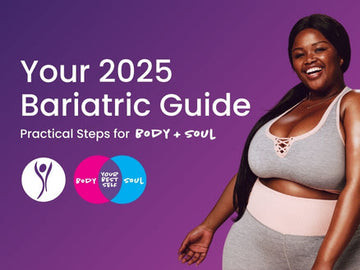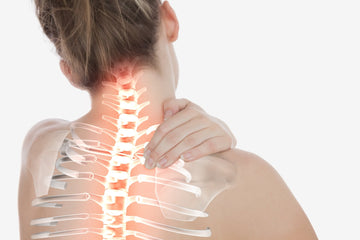Constipation After Bariatric Surgery
 One of the
most common complaints people have after bariatric surgery is constipation.
One of the
most common complaints people have after bariatric surgery is constipation.
Bowel movement changes following weight loss surgery are indeed common side effects. Whether it be diarrhea or constipation, know that these side effects are very common and often not something to worry about, especially if you take the proper steps to combat them.
One study shows just how common constipation is after bariatric surgery, with over ¼ of patients affected at the six-month follow-up.
The same study also found a 33% decrease in the frequency of bowel movements and a change toward firm stools. Thus, suggesting a slowdown in gut transit post-surgery.
Keep reading for more on constipation post-bariatric surgery, its symptoms, and what you can do to help avoid it.
What Is Constipation?
According to John Hopkins Medicine, constipation is when “bowel movements result in the passage of small amounts of hard, dry stool, usually fewer than three times a week.”
Constipation can be an awkward thing to talk about, but don’t feel nervous about asking your doctor about it. They’ve heard it all. In fact, constipation results in about 2.5 million visits to the doctor every year. So, it’s more common than you may think.
Constipation occurs when two things happen: the colon (large intestine) absorbs too much water from the intestinal tract causing the stool to become dry, and the motility (or movement) of the stool inside the colon is prolonged (or slowed).
Constipation Symptoms
If you are constipated, you may experience:
- Difficult and painful bowel movements
- Gas
- Bowel movements fewer than three times a week
- Feeling bloated and uncomfortable
- Feeling sluggish
- Abdominal pain
What Causes Constipation After Bariatric Surgery?
There are several reasons why an individual may experience constipation after bariatric surgery. These include:
- A reduction in food and drink intake
- Introduction of a high-protein diet
- The use of iron supplements
- Medications like tranquilizers, chronic pain medications, antidepressants, or narcotic pain medications
- Weak abdominal muscles
- Not drinking enough water
- Lack of exercise
How Do I Avoid Constipation?
First and foremost, you should focus on consuming enough water every day. You should drink at least 48 to 64 ounces of water daily.
It would help if you also focused on consuming fiber-rich foods. While it’s vital for bariatric patients to consume enough protein to aid healing and muscle building, too much protein and too little fiber can cause constipation. It’s recommended that an individual consume 20 to 35 grams of fiber daily.
Try to include foods like beans, whole grains, bran cereals, fresh fruits, and vegetables in your diet. At the same time, you should also limit foods like ice cream, cheeses, meats, and processed foods, which contain little to no fiber.
Next, you should focus on exercising regularly. Bariatric patients should exercise at least three times a week for one hour or more. However, it’s essential to start slow, like with walking, and to build your way up to more intense exercise as you heal and grow stronger. Walking, swimming, yoga, and climbing stairs are all excellent forms of exercise that help keep your bowel movements regular.
Consult your bariatric surgeon about stool softeners such as docusate sodium if other measures do not relieve your constipation within five days. They will want to make sure there are no other concerns.
Bowel Obstruction vs. Constipation
A bowel obstruction is not the same thing as constipation. While constipation is characterized by difficult-to-pass and/or hard stools, bowel obstruction is a complete blockage of the small or large intestine.
Symptoms include:
- Intense cramping and abdominal pain
- Vomiting
- Abdominal distension
- Dehydration
If you believe you may have a bowel obstruction, stop eating and drinking immediately and contact your bariatric surgeon. Never take laxatives unless you’re given explicit instructions to do so. Your bowel obstruction may require surgery if severe enough, so take it very seriously.
How Can ProCare Health Help?
Try ProCare’s FiberCel | Fiber Powder. This renal-friendly powder is grit and taste-free and can be mixed into as little as two ounces of water, making daily fiber intake easy. Some characteristics of this helpful supplement include:
- No bloating or cramping
- Five grams of instantly dissolving fiber powder per serving
- No added preservatives, bleaching agents, dyes, or flavors
- Sugar, lactose, and gluten-free
Our other products, like our daily multivitamins and our Mag-D Immunity Blend, also contain constipation-fighting substances, such as ferrous fumarate iron (causes less constipation post-surgery than other forms of iron) and magnesium (produces softer and more frequent bowel movements).
At ProCare Health, we care about your health journey, which means supporting you every step of the way. Constipation can get in the way of many daily activities and life events, but it doesn’t have to. Fight back today with our FiberCel | Fiber Powder, regular exercise, sufficient water intake, and a balanced diet. We know you can do it!
Do you need a little extra support from some friendly faces? Check out our Crowdcast Channel for more on life before and after bariatric surgery from educational sources that want to see you happy and healthy.





